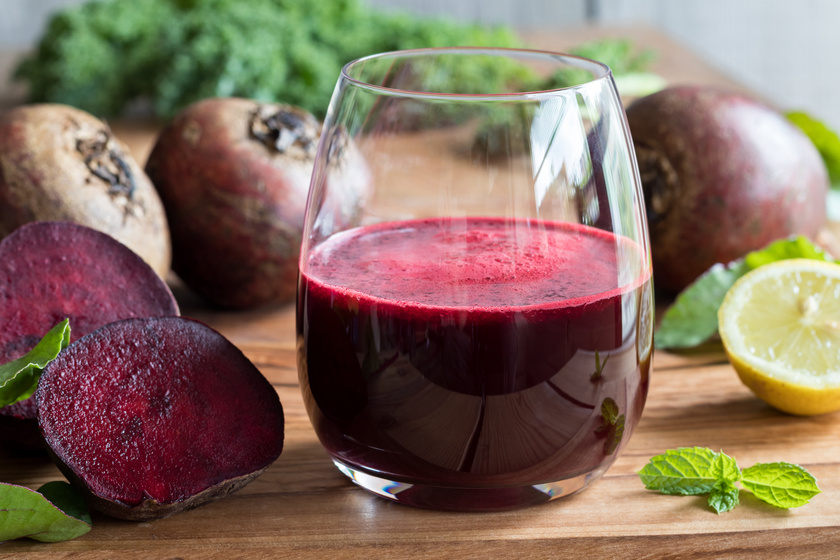
News
Beet Juice for Heart Health An All-Natural Solution


Heart health is a major concern for many people around the world. With the rise in lifestyle diseases and unhealthy eating habits, heart disease has become a leading cause of death globally. While traditional medicine offers various treatments for heart conditions, there is growing interest in natural remedies that can support heart health without any potential side effects. One such remedy gaining popularity is beet juice.
Beet juice has been used for centuries in traditional medicine for its numerous health benefits. But in recent years, studies have shown that it may have specific benefits for heart health. In this article, we will explore the link between beet juice and heart health, whether beet juice can improve heart function, and if it is safe for people with pre-existing heart conditions.
Beet Juice and Heart Health: What is the Connection?
Studies have shown that beet juice may have a positive impact on overall heart health. This is because beets contain high levels of dietary nitrates, which the body converts into nitric oxide. Nitric oxide is a molecule that helps to relax and widen blood vessels, allowing for better blood flow and lower blood pressure. This increased blood flow also means that oxygen and nutrients can reach the heart more efficiently, supporting its function.
Additionally, beets are rich in antioxidants, which can help protect against free radical damage and inflammation in the body. Chronic inflammation is a significant risk factor for heart disease, making beets a potentially beneficial addition to a heart-healthy diet.
Beet Juice for Heart: How Does it Work?
Beet juice contains a compound called betaine, which has been linked to improved cardiovascular health. Betaine works by reducing homocysteine levels in the blood, a known risk factor for heart disease. When homocysteine levels are high, it can cause damage to the lining of blood vessels and increase the risk of blood clots. By reducing these levels, betaine can help improve heart health and reduce the risk of cardiovascular disease.
Moreover, beet juice also contains high levels of folate, potassium, and magnesium, all essential nutrients for heart health. These nutrients work together to regulate blood pressure, maintain a healthy heartbeat, and support overall heart function.
Beet Juice Heart: Can it Prevent Heart Disease?
While there is no definitive evidence that beet juice can prevent heart disease, studies have shown that incorporating beets into your diet may have a positive impact on heart health. In a study conducted on over 44,000 men, researchers found that those who consumed the most nitrate-rich vegetables, including beets, had a lower risk of heart disease compared to those who consumed the least amount.
Another study showed that drinking beet juice daily for six weeks led to significant improvements in blood vessel function and lowered blood pressure in individuals with hypertension. This suggests that beet juice may have some preventive effects against heart disease, especially in those at higher risk.
Beetroot Juice for Heart Patients: Is it Safe?
Beet juice is generally considered safe for consumption, even for those with pre-existing heart conditions. However, if you are taking medication for blood pressure, it is essential to consult with your doctor before incorporating beet juice into your diet. Nitric oxide can cause a drop in blood pressure, which may lead to interactions with certain medications.
Moreover, those with kidney disease should also consult their healthcare provider before consuming large amounts of beet juice as it may increase levels of oxalate in the body, which can lead to kidney stones.
Sub-Headings:
- Beet Juice and Medications: What You Need to Know
- Beet Juice and Kidney Health: Precautions for Those with Kidney Disease
- The Right Amount: How Much Beet Juice Should You Consume?
FAQs
1. Is beet juice safe for pregnant women?
Yes, beet juice is generally safe for pregnant women. However, it is essential to consult with your doctor before consuming large amounts.
2. Can beet juice interact with blood thinners?
Yes, beet juice can interact with blood thinners such as warfarin. It is crucial to consult with your doctor before incorporating beet juice into your diet if you are taking blood thinners.
3. Can I drink too much beet juice?
While beet juice is generally considered safe, consuming excessive amounts may lead to side effects such as stomach upset or kidney stones. It is recommended to consume no more than 8 ounces of beet juice per day.
4. Can beet juice improve athletic performance?
Studies have shown that nitrate-rich foods, such as beets and beet juice, can improve athletic performance by increasing endurance and reducing fatigue.
5. Are there any side effects of drinking beet juice?
For most people, beet juice is safe to consume. However, some individuals may experience side effects such as stomach upset, diarrhea, or low blood pressure. It is essential to listen to your body and stop consuming beet juice if you experience any adverse effects.
Conclusion: Incorporating Beet Juice into Your Diet for Heart Health
In conclusion, beet juice has shown promising benefits for heart health due to its high nitrate and antioxidant content. While it cannot prevent heart disease on its own, incorporating beet juice into a well-balanced diet may help support heart function and reduce the risk of cardiovascular disease. As with any dietary changes, it is always best to consult with your healthcare provider before making significant changes, especially if you have pre-existing health conditions.
